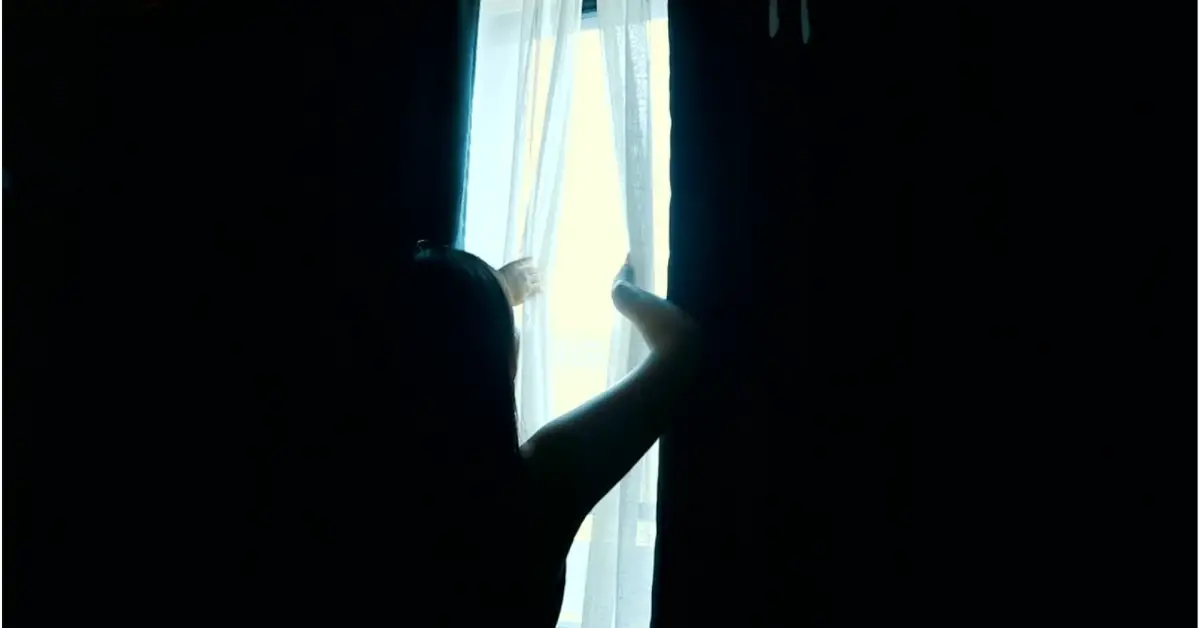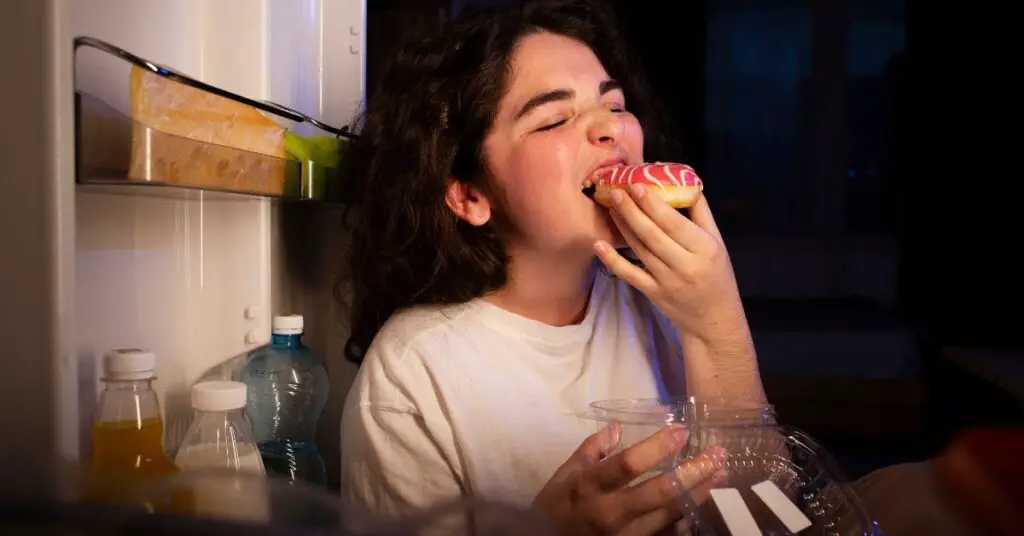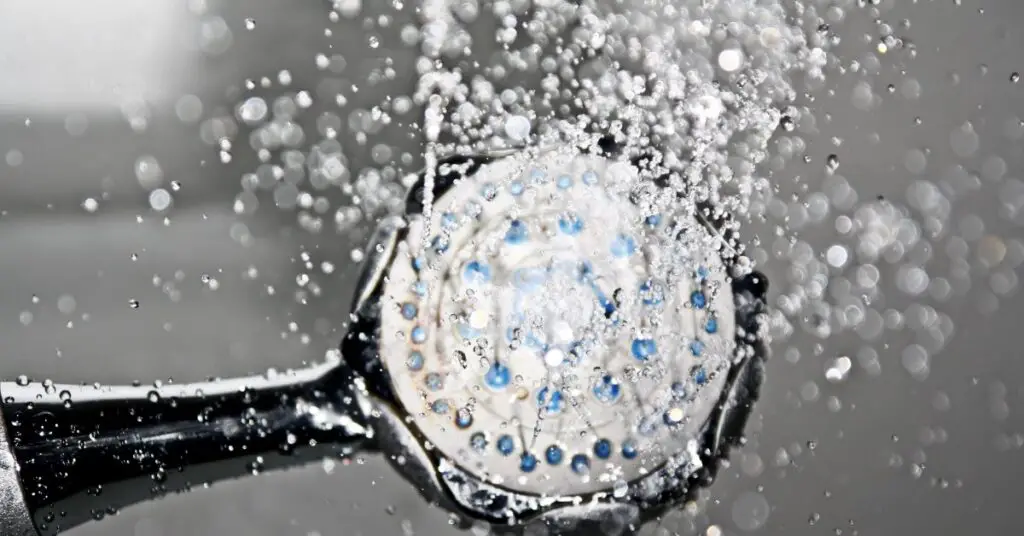Wondering if you need blackout curtains for a nursery? Here’s what you need to know about these curtains and how they can help you and your baby get better sleep.
The products mentioned on this page were independently selected by Babycious editors. As an Amazon Associate, Babycious may earn a commission from qualifying purchases.

Blackout curtains are a whole different ball game from blinds and darkening curtains. Some parents swear by them when it comes to getting more and better sleep for their baby, while others believe that they condition babies to only sleep in pitch-black darkness.
So, do you really need to get blackout curtains for your nursery?
Blackout curtains are a must for a nursery if you live in an area where there is a lot of light pollution, such as from streetlights. Blackout curtains will help to block out any unwanted light and bring a feeling of comfort so that your baby can sleep soundly through the night. They are especially helpful in the summer months when it stays bright late in the evening and once your baby is older than 6 months old.
Blinds and darkening curtains are not as effective at blocking out light as blackout curtains. If you are looking for a way to completely darken your nursery, then blackout curtains are the way to go. However, if you are just looking for a way to reduce the amount of light coming in, then blinds or darkening curtains will do the trick.
Benefits of Blackout Curtains for A Nursery
Everyone sleeps better in a darker room, even adults. Blackout curtains help to create a sleep-friendly environment for your baby by blocking out the light that comes in from the outside completely, and also blocking out some unwanted noise and drafts, and by cutting out the distractions when it’s bedtime so that your baby gets the best sleep possible.
Blocking out The Light
This is the major benefit you get from setting up blackout curtains in the nursery. If you live in the city, or even in the suburbs, chances are there is light pollution that comes into your home at night. This can be from streetlights, car headlights, or even porch lights from your neighbors’ homes. All of this unwanted light coming into the nursery can make it difficult for your baby to fall asleep and stay asleep. Blackout curtains help to block out all of this light so that your baby can sleep soundly through the night.
Sleeping in pitch-black darkness has been proven to be a key element to getting quality sleep. Studies have shown that melatonin is released when we sleep in complete darkness, and this hormone is what helps to regulate our sleep cycle.
Not only does melatonin help us to fall asleep faster, but it also helps us to stay asleep for a longer period of time.
This means that when your baby’s room is pitch black, it signals to their brain that it is time to sleep, and they will be more likely to fall asleep quickly and stay asleep for longer periods of time.
Blocking out Some Noise
In addition to blocking out light, blackout curtains also help to block out some noise. If you live in a noisy area, such as near a construction site or busy street, the sound of outside traffic can be quite loud and disruptive, especially for a baby. Blackout curtains will help to muffle some of this noise so that your baby can sleep peacefully through the night.
Blackout curtains can block up to 30% of noise coming in from the street or outside. Combined with the use of a good sound machine, blackout curtains can be invaluable for improving your baby’s sleep quality and quantity.
Reducing Distractions at Bedtime
Another benefit of blackout curtains is that they can help to reduce distractions at bedtime. If your baby’s room is brightly lit, it can be difficult for them to settle down and relax when it’s time for bed. The bright light can be stimulating and cause your baby to become more alert, making it harder for them to fall asleep.
Blackout curtains help to create a calm and relaxing environment in the nursery, which is conducive to falling asleep. By reducing the amount of light and noise coming into the room, blackout curtains help your baby to settle down and get a good night’s sleep. This way, your baby won’t be able to look around and focus on things as much, and they’ll be more likely to fall asleep quickly.
Reducing Drafts and Blocking Heat
Blackout curtains can also help to reduce drafts in the nursery. If you live in a drafty home, or if your nursery has more than one window, then you know how disruptive a draft can be when trying to sleep. Blackout curtains will help to block out some of the drafts so that your baby can sleep comfortably through the night.
Blackout curtains can also help to block out heat in the nursery. If you live in a warmer climate, or if your nursery is located on the sunny side of the house, then you know how difficult it can be to keep the room cool during the day. Blackout curtains will help to block out some of the heat so that your baby can sleep comfortably through the night and help your baby sleep when the sun is out if you are putting the crib in front of the window or have a small nursery.
Things to Consider when Deciding on Getting Blackout Curtains or Not
There are some factors that would recommend getting blackout curtains for your nursery, or maybe get them later or not at all:
How Old Your Baby Is
If your baby is still very young (under six months old), they will likely be sleeping a lot during the day and night. In this case, blackout curtains may not be necessary as having some light while they’re sleeping, especially during the day can be beneficial for establishing their circadian rhythm and helping them separate day from night.
However, at around six months, many babies start getting more wakeful periods during the day and their sleep at night becomes more consolidated. This is when you may want to consider using blackout curtains to help them get quality nighttime sleep. The stimulation of light and sound can become a problem for babies when it’s time to sleep. For me, blackout curtains were a lifesaver by the time my daughter was 6 months old, especially for naps.
Your Nursery’s Windows Location
Having south-facing windows in your nursery means that the room gets a lot of light, even with darkening curtains, making it difficult for your baby to sleep during the day. In this case, blackout curtains are a must in order to create an environment that is conducive to daytime sleeping, and to make naptime a thing again!
On the other hand, if your nursery has north-facing windows, then you may not have to worry about getting blackout curtains. My advice is to get in the nursery at night and stay there for a few minutes to get a sense of how much light actually comes in from the outside. This will help you make up your mind about getting blackout curtains or not.
The Season
During summertime, it usually stays light out for longer which means that you’ll definitely need to get blackout curtains since your baby will go to bed while it’s still bright as day. Blackout curtains can help to reduce the amount of light and heat coming into the room during those months, and you’ll be happy you have them when putting your baby to sleep in a cool and dark room regardless of the amount of light in the outside.
Of course, not all babies are as sensitive to light and sound as others, so you know your baby best. But if you find that your baby has difficulty falling asleep or staying asleep, then blackout curtains may be worth considering to create a sleep-friendly environment in the nursery.
Related : How to Create a Gorgeous Green Nursery (with 7 decorating ideas)
Bottom Line
Blackout curtains are not a must for every nursery, but they can be helpful in creating a sleep-friendly environment for your baby, especially if you live in a light-polluted noisy neighborhood.
If you’re considering getting blackout curtains, think about how old your baby is, the location of your nursery’s windows, and the time of year. All of these factors will help you decide if blackout curtains are right for your nursery, and if you should get them right away or set them up later.
The purpose of this article is informative and educational only. It’s not a substitute for medical consultation or medical care. We do not accept any responsibility for any liability, loss, or risk, personal or otherwise, incurred as a consequence, directly or indirectly, from any information or advice contained here. Babycious may earn compensation from affiliate links in this content.



